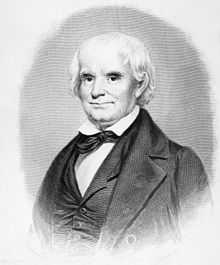John Augustine Smith

John Augustine Smith (29 August 1782 – 9 February 1865) was the tenth president of the College of William and Mary, serving from 1814 to 1826.
Smith was born in Westmoreland county, son of Reverend Thomas Smith. He was graduated from William and Mary College in 1800, studied medicine and settled as a physician in New York City. In 1809 he became lecturer on anatomy at the College of Physicians and Surgeons, and editor of the Medical and Physiological Journal. In 1814 he was elected president of William and Mary College. Smith was the first layman to hold the presidency.[1][2]
In 1824, Because of low enrollment at the College, he proposed that it be moved to Richmond from Williamsburg;[3] this proposal was defeated by the General Assembly and the controversy from the proposal eventually caused Smith to resign. After leaving the College of William and Mary, Smith joined the faculty of the College of Physicians and Surgeons in New York City, eventually becoming its president in 1831.[4]
Smith's publications include "Introductory Discourse" (New York, 1837), "Select Discourse on the Functions of the Nervous System" (1840), "The Mutations of the Earth" (1846) and "Moral and Physical Science" (1853).[1]
References
- ↑ 1.0 1.1 Alfred James Morrison; Virginia. State Board of Education (1917). The Beginnings of Public Education in Virginia, 1776–1860: Study of Secondary Schools in Relation to the State Literary Fund. D. Bottom, superintendent of public printing. pp. 91 ff. Retrieved 17 April 2012.
- ↑ "19th Century Presidents". College of William and Mary. Retrieved 25 January 2011.
- ↑ "Petitions to Remove the College from Williamsburg". Special Collections Research Center, Earl Gregg Swem Library, College of William and Mary. Retrieved 25 January 2011.
- ↑ "Political Economy at the College of William and Mary". College of William and Mary. Retrieved 25 January 2011.
External links
- Finding aid for the College of Physicians and Surgeons manuscript collection
- Finding aid for the Petitions to Remove the College from Williamsburg
| |||||